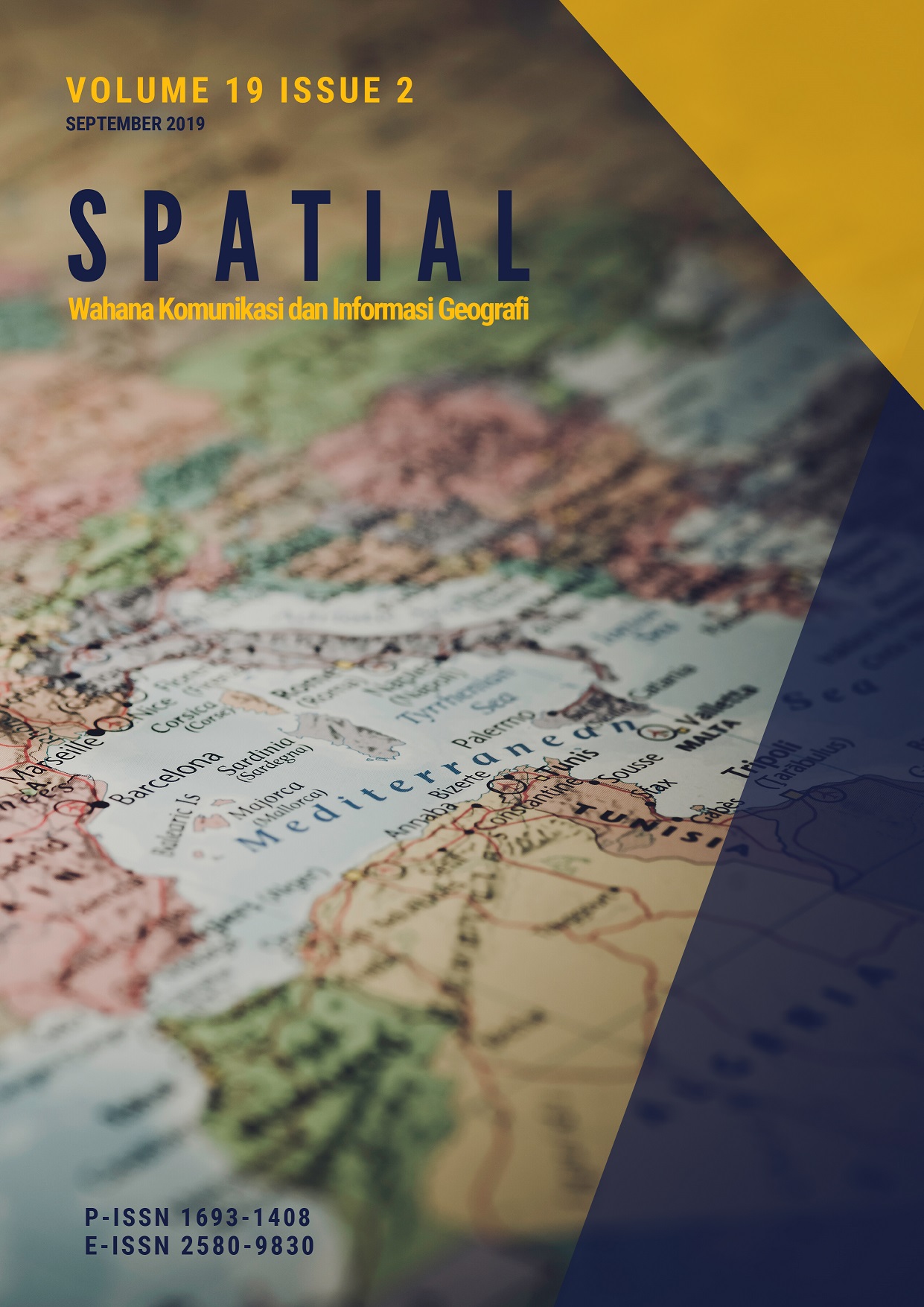Population Fertility As an Evaluation of The Success of Family Planning in Jatisari Village Pakisaji District, Malang Regency
DOI:
https://doi.org/10.21009/spatial.192.6Keywords:
CRA population fertility, Evaluate the success of familyAbstract
The decrease of fertility and improving public health are the main objectives to improve family welfare. The purpose of this study was to determine the fertility level of Kedampul Hamlet in Petung Sewu Village, Tumpang District, Malang Regency and to evaluate the success of family planning (KB) program of Couples of Reproductive Age (CRA) in that area. This research is a survey research with population of couples of reproductive ages in Kedampul Hamlet. The CRA sampling technique of the respondent is purposive, and interview as the main technique in data collection. The results showed that the fertility rate of CRA is higher in non-acceptor than the acceptor. The fertility of acceptor communities with non-acceptors are based on age of first marriage, span of reproduction period, wife's education, family income and infant mortality. There is a no significant difference in fertility based on the use of contraceptive. However, simultaneously the six independent variables have a significant relationship with fertility for acceptors and non-acceptors CRA. The largest contribution is given by the infant mortality variable and the smallest by the use of contraceptive.
Downloads
Published
How to Cite
Issue
Section
License
An author who publishes in the journal SPATIAL Wahana Komunikasi dan Informasi Geografi agrees to the following terms:
Author retains the copyright and grants the journal the right of first publication of the work simultaneously licensed under the Creative Commons Attribution 4.0 License that allows others to share the work with an acknowledgement of the work's authorship and initial publication in this journal
Author is able to enter into separate, additional contractual arrangements for the non-exclusive distribution of the journal's published version of the work (e.g., post it to an institutional repository or publish it in a book) with the acknowledgement of its initial publication in this journal.
Author is permitted and encouraged to post his/her work online (e.g., in institutional repositories or on their website) prior to and during the submission process, as it can lead to productive exchanges, as well as earlier and greater citation of the published work (See The Effect of Open Access).
This work is licensed under a https://creativecommons.org/licenses/by/4.0/









